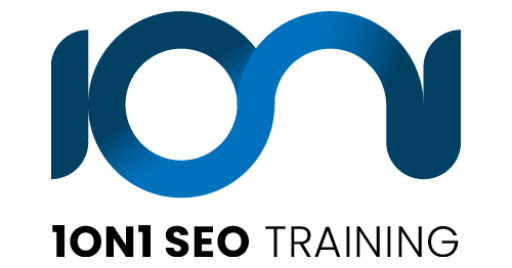In 2008, Hubspot published a quirky, fun video about inbound marketing and SEO. They mentioned Twitter, RSS, blogging, content, and all the foundations we still use today to optimize search engines. Watch the video above to get a good laugh. On top of the humor, it's essential to pay attention to the central message of the video: people are burned out from advertising, spam, and cold calling. They don't like receiving unsolicited calls and emails. But, of course, no one seriously says they like being called by strangers in the middle of the day only to receive a marketing spiel.
The boss/manager in the 2008 Hubspot video perfectly exemplifies the old way of thinking about marketing: "What the hell is this internet cr*p? If you're not dialing, I'm not smiling!"
The video is 14 years old, but if everyone had paid attention back then, it's possible that ads today would be largely outdated. Regardless, if your business needs a huge boost next year and your PPC campaigns are not bringing in the ROI you envisioned, it's a good idea to consider inbound marketing and SEO. When customers are burned out from advertising channels, they ignore ads, and many choose not to buy from them anymore.
What's Inbound Marketing Truly About?
Inbound marketing fosters and nurtures meaningful relationships with customers. This is the general formula for inbound marketing, but the specific approaches vary for every market. There are three main ways that you can apply inbound marketing to your digital marketing and SEO strategies: through attracting, engaging, and delighting. Attracting an audience means you publish content formats that make people want to read you. As a result, you become a reliable and credible resource online. When you solve people's problems, you are the advisor that they can trust online.
Engaging means you begin presenting different solutions that can solve their problems. People go online because they need answers or to solve a problem (or ten). It's only natural for customers to trust brands that ultimately provide the best solutions. Customers have goals and pain points. It's up to you to find out what these goals and pain points are so that you can align your inbound marketing efforts accordingly.
Delighting people online involves providing additional support and resources to your customers. You want your customers to be satisfied after buying from you, so you make sure that your brand is just as reliable and fast to address issues as before they made the purchase. That way, you can earn their trust even more, and you gain the benefit of social validation/feedback and referrals in the process.
How Does SEO Figure into the Equation?
Technically speaking, SEO is a part of inbound marketing. To attract more customers this year (and the next), businesses need websites that have been optimized for humans and search engines.
You must begin using relevant keywords and use this information to craft a superior content strategy.
The goal is to generate valuable content that even your competitors don't have. What valuable content means in your market will vary depending on the consumption trend. That's where research comes into play. It's easy to assume that people are interested in a specific topic by keyword results, but what are people reading online? What are your competitors writing? Looking at the big picture before launching a content campaign is essential.
Without inbound marketing, your website may attract some readers, but they will not readily convert to paying customers.
Using the website's prominence as a springboard, inbound marketers actively seek ways to boost conversions. We want our customers to believe in us so they'd buy directly from the website when they spot great content.
Search engine optimization is frequently used in the first stage of inbound marketing techniques, which aims to entice the buyer. Cross-selling, engaging content, novel calls to action, and other strategies are then employed to complete the sale and win the customer's loyalty.
Content Strategies for the Savvy Professionals and Entrepreneurs
Everyone benefits from SEO. This is not a digital channel that leaves behind a trail of tears and frustrations. Unlike PPC, your marketing budget doesn't disappear after every step. Instead, all your efforts are visible, and you work tirelessly to improve your chances of success.
A considerable part of the effort is implementing a content strategy that works with your market or industry vertical. While effective, content marketing is also highly cutthroat. No progress can be made by repeating arguments already made. You and your target market are one of a kind. To maximize your content marketing efforts, you should create informative, in-depth, and novel material for your target audience.
Among the many goals that you'd want to accomplish using a content strategy are the following:
1. Provide support to your customers post-sale
2. Increase sales and revenue
3. Move your customers along the journey
4. Generate more leads
5. Offer more value
6. Generate more valid and qualified web traffic to your digital properties
While we can't discuss everything that has to do with content strategy here, consider the following tips when creating one:
Increase Your Landing Pages
Landing pages increase the chances of converting visitors into buyers because they zero in on a single objective by highlighting a product or service. In addition, because there aren't many options on the page, website visitors aren't diverted from the page's intended purpose.
Traffic can also be directed to a specific landing page that promotes a single offer to increase the likelihood that visitors will convert into paying customers. The variety of landing pages on your website can directly impact the success of your SEO and inbound marketing efforts.
Don't let those landing pages stagnate. Instead, test them and add more based on the new customer intent data you discover in the weeks and months ahead. There's nothing wrong with having numerous landing pages that serve different purposes. However, a slight shift in customer intent can drive results.
Landing pages, in general, initiate a a post-click sequence that reassures the visitors that they’ve found the right place.
In contrast to busy homepages or product pages, make it abundantly evident to the visitor what action will be taken in response to their click.
Creating a landing page for your website's visitors allows you to fine-tune and enhance the contact with them, raising the likelihood of a sale. You also increase the return on investment of your pay-per-click (PPC) campaign by using a landing page. Make sure you use the right landing page to maximize your conversion rate.
Give Your Audience What They Want
This potent strategy many publishers miss the first time they try inbound marketing. It's easy to get too caught up with keyword research. If you miss the bigger picture, then even the best keyword data won't move your SEO campaign along.
The only way to write content that will resonate with your target demographic and provide positive user experiences is to conduct extensive research about your customers and what makes them tick. Do some basic keyword research to figure out precisely what it is that your prospective buyers are looking for.
Remember to use Google Trends to understand the current interest in your issue better. Please enter your primary term into the search bar to see how many times it has been looked up over a given time frame.
Free tools like Google Trends can give you a general idea of how people use your keywords to find you online. However, always keep in mind that the success of your content marketing plan is directly proportional to how well you understand your target audience and how closely you can tailor your content to meet their needs. If you need a cheat sheet of sorts as to what you should never forget when doing inbound marketing, the video's lyrics above can be found here.
Learn from the Experts
There's a reason why some people stand out in every field: they're good at what they do. Picking their brains is possible when you examine how they write and think. A great place to start would be popular and vetted online courses. If you can't find these courses in your market, check out books on Amazon. Essentially, you want to find out how they present content and figure out the topics that they think are valuable for their readers.
You don't have to follow every page and passage, but knowing how the experts do it will boost your content strategy considerably in terms of credibility and relevance. It's tough to build content only to find out later that the experts are going in a completely different direction.
Also, with the expertise of the well-known authority figures in your market, some customers may rule out your content because it doesn't read well or doesn't sound like it follows the trend made by the experts.



